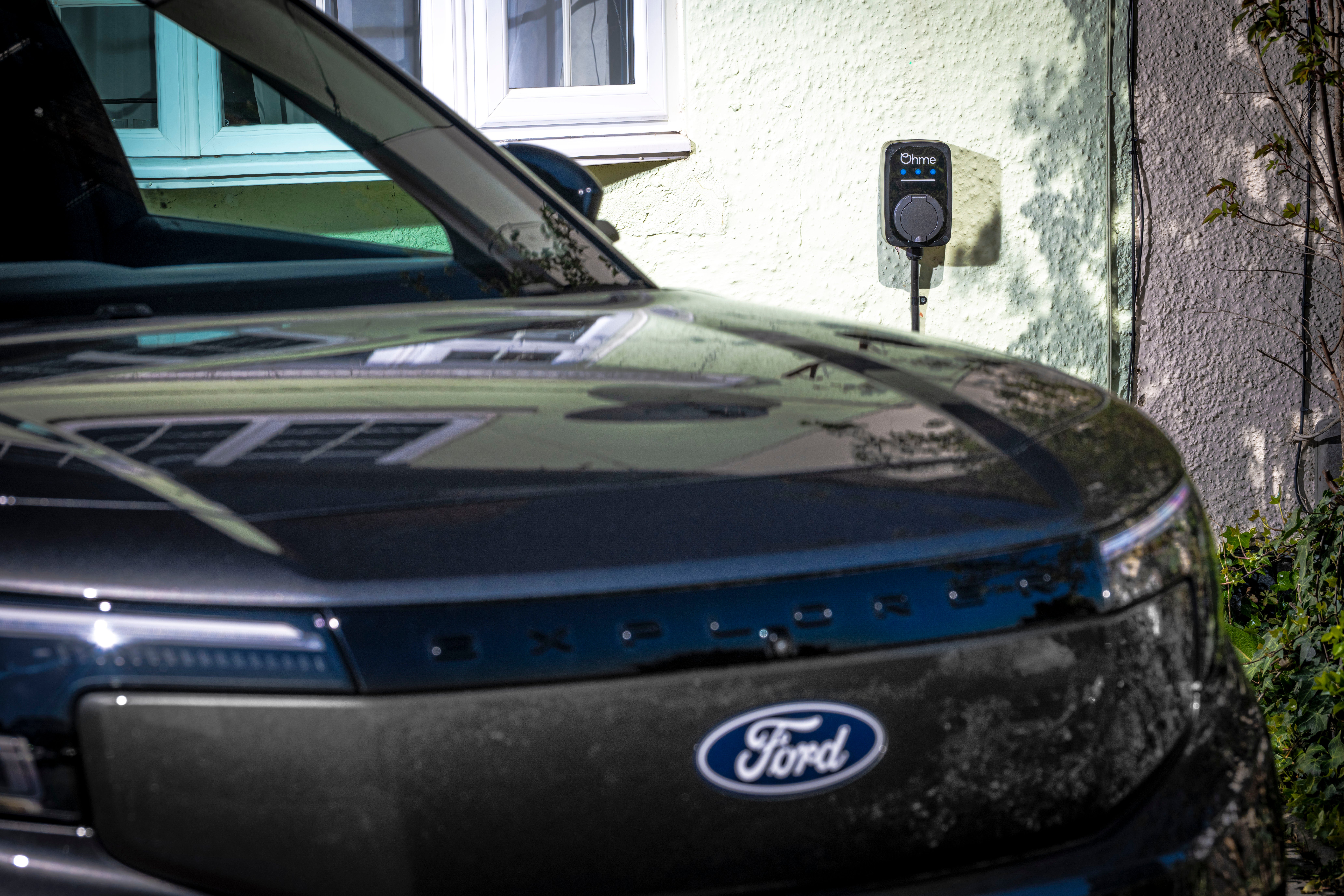EV charging points to be made faster to install as Labour cuts red tape
Changes to planning rules mean businesses and drivers can install EV chargers ‘faster and for less’
The UK government is promising action on planning to make it easier to install EV charging points, particularly for businesses. Future of Roads minister Lilian Greenwood has said that more drivers and businesses will no longer need to submit a planning application to install public or private EV sockets.
Planning permission delays when installing new EV charging points are often cited as one of the main barriers to EV adoption, particularly amongst businesses. Mike Hawes, chief executive of automotive industry trade body SMMT, said last month that “prioritising grid connections, alongside reform to planning and action on energy costs, would reduce barriers to adoption, ensuring commercial vehicles continue to carry the loads that keep our economy on the move while doing the heavy lifting the nation needs to reach net zero.”
“We’re cutting down on paperwork to power up the EV revolution so that drivers, businesses and those looking to make the switch will have more charge points to power from and less red tape to deal with,” said Greenwood.
“We continue to make the switch to EVs easier, cheaper and better by investing over £2.3bn to support drivers and back British carmakers through international trade deals – creating jobs, boosting investment and securing our future as part of our Plan for Change.”
Home EV chargers very rarely need planning permission, but it’s more likely to be required when fitting public or workplace chargers in shared spaces. By cutting down on paperwork and with planning changes, the government says businesses will be able to install new charge points “faster and for less” to help increase the number of public charge points available for EV drivers.

Latest statistics show that there are nearly 80,000 public EV charge points in the UK, with 3,000 of those added in April this year. According to government figures, a new public charge point opens every 29 minutes on average.
Private EV owners can also continue to access grants to help cover the cost of fitting an EV charging point. If you live in a flat with off-street parking or rent any residential property with off-street parking you can apply for the electric vehicle charge point grant for renters and flat owners, which provides up to £350 towards the cost of installation.
If you only have on-street parking outside your home, whether you own or rent, and are installing a ‘cross-pavement solution’ such as a charging gully, there’s also a £350 grant available as part of the electric vehicle charge point grant for households with on-street parking.
Other £350 per-socket grants are also available for businesses, charities and public sector organisations under the Workplace Charging Scheme, and also for landlords installing charge points at their properties. Small and medium-sized businesses can apply for grants of up to £15,000 per site to install charging points, while education institutions can apply for grants of up to £2,500 per socket.
Commenting on the government’s announcement, home charge point provider Ohme’s CEO David Watson said “at present around 80 per cent of EV drivers charge their cars at home or at work, so anything that helps to make that easier – such as today’s government announcement – is very welcome.
“We applaud this DfT announcement, which will make home and workplace chargers more accessible for more drivers, in turn helping them to save on their everyday motoring costs.”
Mandy Simpson, founder of Simpson & Partners, said, "We welcome the government's proactive steps to simplify and accelerate the rollout of electric vehicle charging infrastructure. By addressing planning and grid connection challenges it paves the way for a more accessible and efficient EV charging network.”
Delvin Lane, CEO of public charging company InstaVolt, said, “We are supportive of the Government acting proactively and moving in a positive direction. Anything that helps remove barriers to EV adoption and gives all drivers confidence in the infrastructure - helping remove range anxiety - is a strong move in the right direction.”



Join our commenting forum
Join thought-provoking conversations, follow other Independent readers and see their replies
Comments